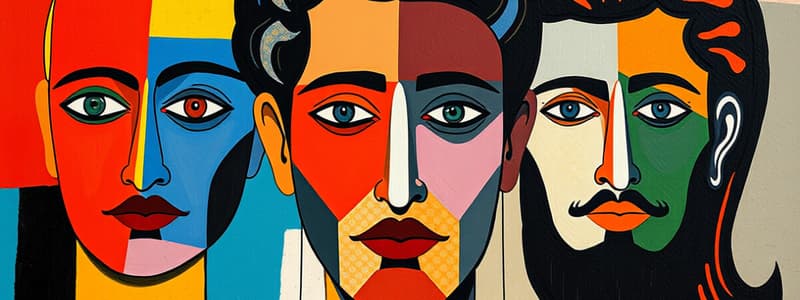Podcast
Questions and Answers
What is cognitive schemata?
What is cognitive schemata?
The way we organize and interpret experience by applying structures: prototypes, stereotypes, personal constructs, scripts.
A prototype is defined as your ideal example of a category; for instance, _____ is a perfect teacher because...
A prototype is defined as your ideal example of a category; for instance, _____ is a perfect teacher because...
someone
What are stereotypes?
What are stereotypes?
A predictive generalization about a person or situation, such as assuming all cheerleaders are blonde and dumb.
What are scripts?
What are scripts?
What is a personal construct?
What is a personal construct?
Flashcards are hidden until you start studying
Study Notes
Cognitive Schemata
- Cognitive schemata are mental frameworks used to organize and interpret experiences.
- They include structures such as prototypes, stereotypes, personal constructs, and scripts.
Prototypes
- Prototypes serve as ideal examples that define a category.
- They reflect individual beliefs about what constitutes the best representation in a category.
Stereotypes
- Stereotypes are broad generalizations that predict behaviors or characteristics of individuals based on group membership.
- Example stereotype: "All cheerleaders are blonde and dumb," which oversimplifies and misrepresents individuals.
Scripts
- Scripts are structured sequences of actions or dialogues expected in specific situations.
- For instance, a common script is to introduce oneself upon meeting someone new, guiding interpersonal interactions.
Personal Construct
- Personal constructs act as bipolar mental tools for evaluating people and situations.
- They help individuals categorize experiences along dimensions such as good-bad or friendly-unfriendly, influencing perceptions and judgments.
Studying That Suits You
Use AI to generate personalized quizzes and flashcards to suit your learning preferences.




